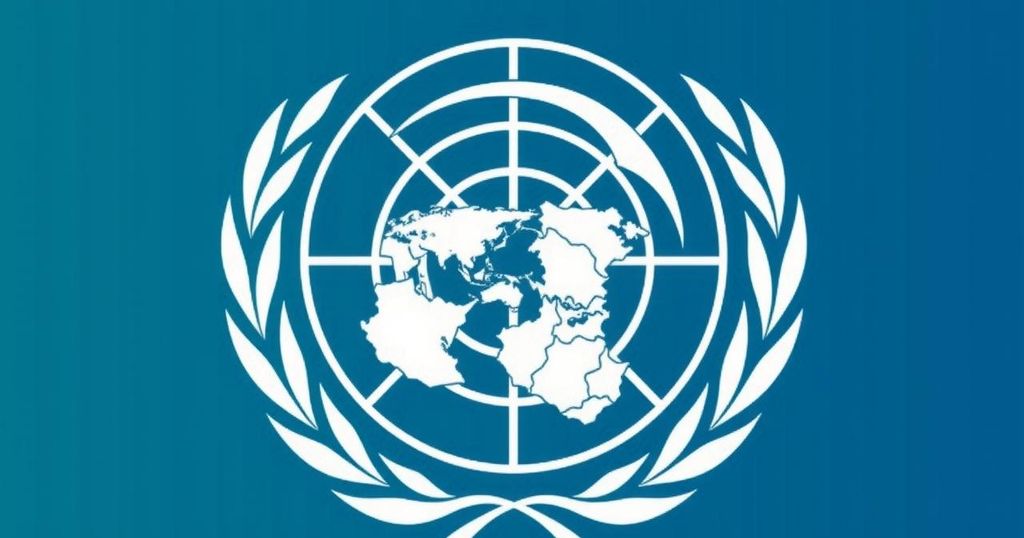Mohamed Maait Takes Office at IMF as Advocate for Arab Economies
Mohamed Maait has begun his role as the Executive Director at the IMF, representing the Arab Group and Maldives. He expresses gratitude to Egyptian leadership and emphasizes his commitment to enhancing economic stability and growth for Arab nations, focusing on debt management, private sector investment, and leveraging IMF resources effectively.
Mohamed Maait, the former finance minister of Egypt, has officially assumed his responsibilities as the Executive Director and member of the Executive Board at the International Monetary Fund (IMF), representing the Arab Group and the Maldives. In his new capacity, Maait has expressed profound gratitude to President Abdel Fattah Al-Sisi for the trust and support afforded to him during his nomination process. He extended his thanks to the Egyptian government, particularly Prime Minister Mostafa Madbouly, as well as the Central Bank’s governor and representatives from the Arab Group and Maldives at the IMF for their backing throughout the voting process. Furthermore, he acknowledged the significant contributions made by Dr. Mahmoud Mohieldin, his predecessor, in promoting the economic and developmental goals of Arab nations during his tenure. In a statement released to the public, Maait underscored his commitment to intensifying efforts aimed at bolstering Arab economies. His objectives include fostering growth through consistent and well-coordinated international financial and monetary policies, which are essential in strengthening financial stability, ensuring sound public financial management, and establishing resilient and sustainable economic foundations, particularly benefiting developing nations and especially low- and middle-income countries. Maait elaborated on his intentions to tackle the escalating challenges posed by debt burdens, actively pursuing relevant financing solutions that can facilitate development and create job opportunities. He emphasized the necessity of enhancing the role of the private sector in economic activities, advocating for increased investments within a transparent and competitive business environment. He highlighted the crucial role that international investments, particularly private investments, must play in stimulating developmental growth and meeting the vital needs of the populace. In the near future, Maait plans to maximize the advantages for the Arab Group and Maldives from the resources and expertise of the IMF. He aims to improve coordination with regional Arab institutions, which he believes is fundamental in addressing both internal and external challenges faced by the economies of Arab nations and the Maldives. He remarked on the importance of adopting flexible strategies to effectively manage the present uncertainties, especially in light of rising debt levels, inflation, unemployment, lackluster economic growth, and the fiscal demands associated with addressing the impacts of climate change.
The International Monetary Fund (IMF) plays a crucial role in global economic stability by providing financial assistance and policy advice to its member countries. The Arab Group within the IMF represents a coalition of Arab countries seeking to coordinate and enhance their economic policies and financial management standards. The Maldives, an island nation in South Asia, is also represented, reflecting the IMF’s commitment to supporting diverse economies, particularly those of developing nations. Maait’s appointment signifies a strategic move by the Arab Group to strengthen their influence in global financial discussions, especially in light of ongoing economic challenges in the region and the potential for collaboration to address issues like debt and investment shortcomings.
In summary, Mohamed Maait’s new role as Executive Director at the IMF represents a significant opportunity for the Arab Group and Maldives to amplify their voices in global financial matters. His commitment to strengthening economic foundations, addressing debt burdens, enhancing private sector involvement, and maximizing IMF resources for regional benefit will be pivotal as these nations navigate current and emerging economic challenges. Maait’s leadership is anticipated to foster resilience and growth within the Arab economies, guiding them toward a more sustainable and prosperous future.
Original Source: www.dailynewsegypt.com




Post Comment